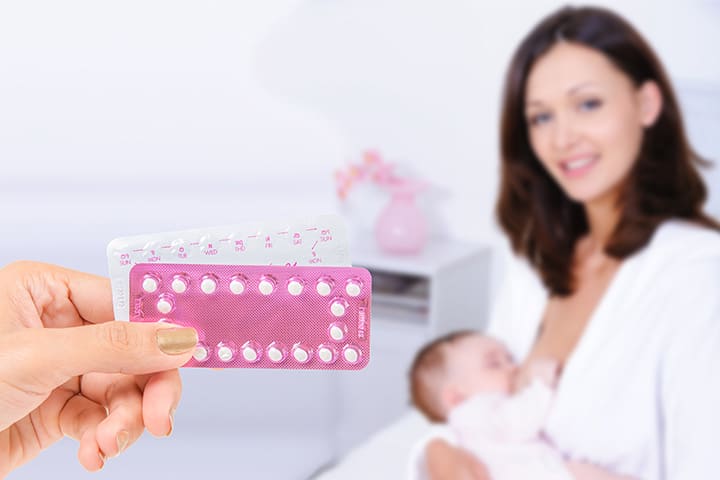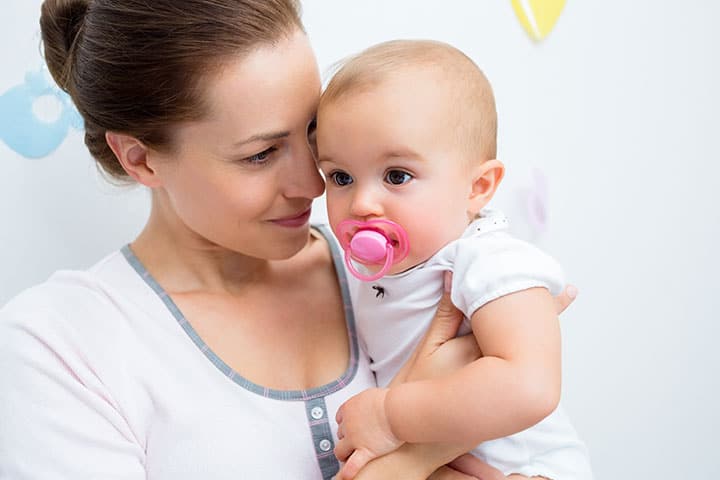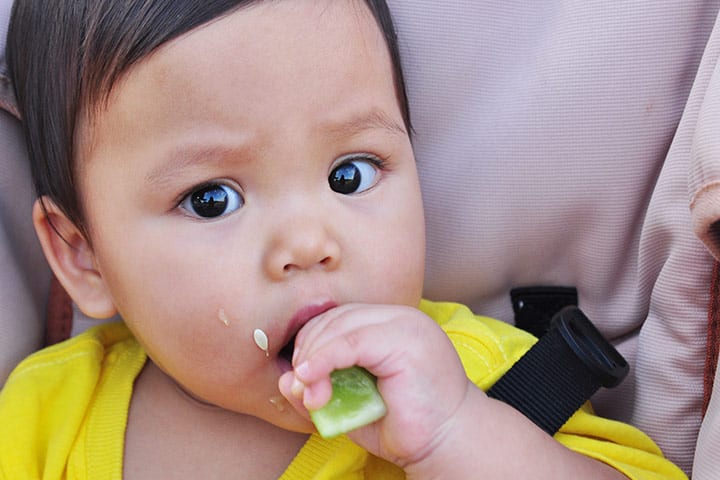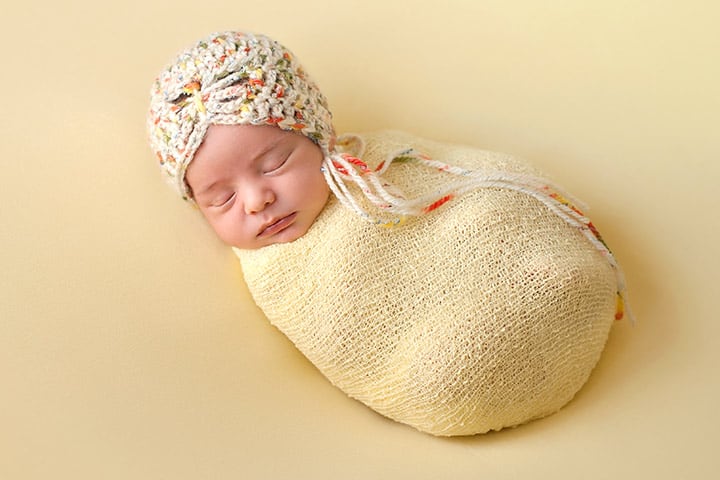You have just given birth. We are sure the thought of another pregnancy is the farthest thing from your mind right now. But many babies are conceived when you least expect it. And if you think breastfeeding will keep pregnancy at bay, you are taking a huge risk.
So, how can you prevent a pregnancy? Birth control pills are a favorite among women around the world. But many are apprehensive about using these pills while breastfeeding. How credible are these fears?
If you have questions regarding birth control pills and breastfeeding, we have the answers, right here!
How Effective Are Birth Control Pills During Breastfeeding?
Birth control pills are one of the most effective birth control methods you can use. When used correctly, these pills provide 99% protection against accidental pregnancies (1).
Is It Safe To Take Birth Control Pills While Breastfeeding?
This is a common question. Most women worry about hormones from the pills reaching their babies via breast milk.
To find the answer to this question, you need to understand the ins and outs of birth control pills.
There are two kinds of hormonal contraceptive pills:
- Progestin-Only Contraceptive (POC)
- Combined Contraceptive
Both of these contraceptive pills work efficiently to prevent a pregnancy. But when it comes to birth control pills for breastfeeding moms, POC is a better option. This is because combined contraceptives contain both progesterone and estrogen. These hormones will not harm your baby. But estrogen is known to bring down breast milk volume by as much as 41.9 % (2). If you are planning to use a combination pill, wait for at least the first six months of your baby’s life. This is the time when your little one needs breast milk the most. Once she starts solids, a little drop in breast milk supply won’t have much of an impact. Till then, you should stick with POC.
Progestin-only pill is also called the ‘Mini Pill’. These pills contain only a small amount of progesterone. In tandem with breastfeeding, mini pills are almost 100% effective in preventing accidental pregnancies. But you need to be careful with its use. You’ll need to take the pill at the same time every day for it to work effectively. A delay of even three-four hours can cause problems.
How Do Progestin-Only Contraceptives (POC) Work?
A progestin-only contraceptive thickens the cervical mucus and stops the sperm from reaching the egg. Some POC can also stop ovulation.
Are There Other Progestin-Only Contraceptive Options?
If a pill is not your cup of tea, you can try other forms of Progestin-Only Contraceptives. Some options you can try include:
- Birth control injection (Depo-Provera)
- Progesterone-releasing IUD (Mirena, Skyla)
- Birth control implant (Implanon, Nexplanon)
These options are perfect for women looking for longer protection from accidental pregnancies. If you tend to forget, mini pills might not work for you. You can try these alternatives instead.
What About The Morning After Pill?
Morning after pills are called emergency contraceptive for a reason. You should only use them in case of an emergency. The morning after pill should never be your first option to prevent a pregnancy.
But if you ever need one, go for a progestin-only emergency pill. These pills, when used sparsely, are not known to harm a newborn baby (3).
Are There Any Side Effects?
Yes, there are side effects that you may encounter. Here’s a look at the ways how taking birth control pills while breastfeeding might affect:
1. Milk Supply:
This is the most important side effect that comes with hormonal contraceptive. As mentioned before, combination birth control pills can reduce milk supply in nursing mothers to quite an extent.
2. Fussiness:
All kind hormonal contraceptive can lead to a fussy baby. Though there is a lack of scientific studies in this regard, many mothers have reported this problem.
3. Diabetes:
If you had gestational diabetes during your pregnancy, using POC raises the risk of developing type II diabetes within a year (4). So, do talk to your doctor before you start on birth control pills.
Points To Remember:
If you are all set to start taking birth control pills, keep the following points in mind:
- Talk to your doctor. He’ll be the right person to guide you regarding the best possible birth control option.
- Be wary of combination birth control pills if you want to breastfeed exclusively for the first six months.
- Use a low dose pill. Ask your doctor for the best option.
- If your milk supply drops or if your baby has trouble gaining weight, consult your doctor. It may be time to use some other form of birth control.
- Motherhood can be tough. If you think sleep deprivation and exhaustion may prevent you from using the mini pill properly, use other POC options.
- Remember that hormonal contraceptives do not prevent STDs. So, use condoms as a backup.
If you have always used birth control pills, you don’t need to stop now. In fact, the right birth control pill is a great way to get a little peace of mind. And when you have a little one at home, peace of mind is a costly commodity!
So, what is your preferred form of birth control while breastfeeding? Do you depend on breastfeeding to prevent pregnancy? Tell us!
























